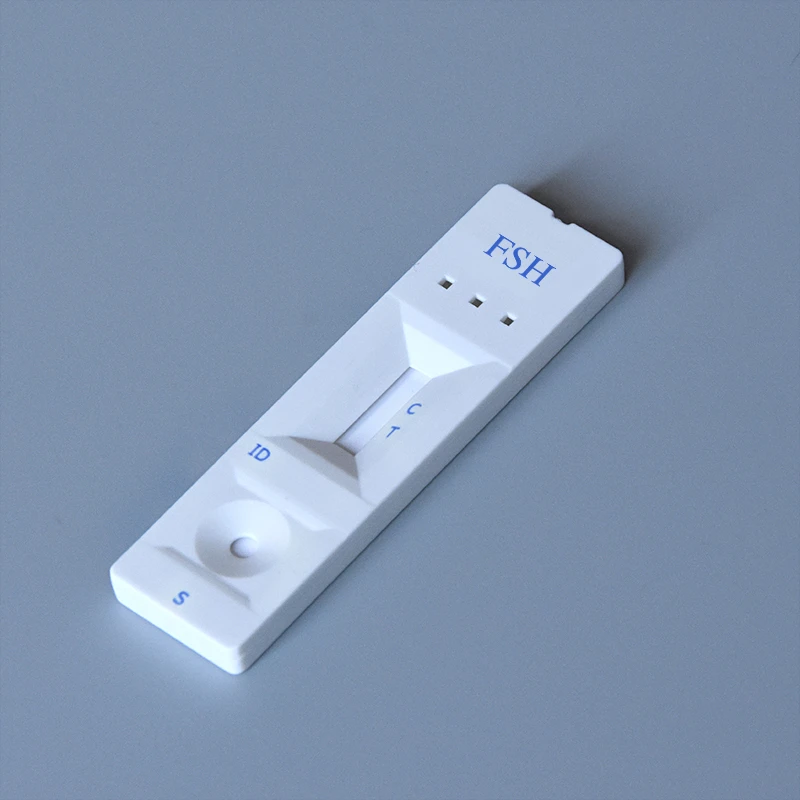Feb . 16, 2025 13:24 Back to list
crp test
Navigating the vast world of medical diagnostics can be overwhelming, especially when faced with tests that hold crucial insights into one’s health. The CRP test, or C-reactive protein test, is one such diagnostic tool that has gained significant traction in recent years for its ability to assess inflammation in the body. This article delves into the nuances of the CRP test, examining its applications, benefits, and implications on health management, enhanced by expert opinions and real-life experiences.
Experts also stress the role of the CRP test in preventative health. Elevated CRP levels, even in the absence of obvious symptoms, can act as a red flag for potential cardiovascular issues. Dr. Emily Wallace, a cardiologist, states, Research has shown a correlation between elevated CRP levels and increased risk of heart attacks. While it's not the only risk factor, it certainly adds another layer of information that can be crucial for preventative cardiology. Trustworthiness and Authoritativeness in CRP Testing The credibility of the CRP test is underpinned by decades of research and clinical application. Numerous studies have validated its role in monitoring inflammatory conditions and its potential implications in assessing cardiovascular risk. National health organizations globally recognize it as a routine testing method for both acute inflammatory responses and ongoing chronic disease management. For individuals considering a CRP test, trust lies not only in the test itself but also in the healthcare providers interpreting the results. Choosing a reputable laboratory and consulting with experienced medical professionals ensures accurate interpretation and appropriate action. Tailoring Treatment Plans The integration of CRP test results into personalized treatment plans is where its true value shines. By evaluating CRP levels alongside other clinical findings, healthcare providers can devise more precise treatment strategies. For instance, in managing autoimmune conditions, elevated CRP levels might prompt an increase in anti-inflammatory medication, whereas stable levels might allow for tapering down. Lifestyle adjustments are another critical component. Elevated CRP levels have been linked to lifestyle factors including obesity, smoking, and sedentary behavior. Addressing these can often lead to a natural reduction in CRP levels, enhancing overall health and reducing reliance on medication. In conclusion, the CRP test plays an essential role in the modern diagnostic landscape. It provides a critical measure of inflammation, guiding healthcare providers in developing comprehensive, effective treatment approaches. For patients, the journey often involves understanding what these numbers mean and how they change in response to treatment and lifestyle choices. As always, consulting with a well-informed healthcare professional ensures the most effective use of this test in maintaining optimal health.


Experts also stress the role of the CRP test in preventative health. Elevated CRP levels, even in the absence of obvious symptoms, can act as a red flag for potential cardiovascular issues. Dr. Emily Wallace, a cardiologist, states, Research has shown a correlation between elevated CRP levels and increased risk of heart attacks. While it's not the only risk factor, it certainly adds another layer of information that can be crucial for preventative cardiology. Trustworthiness and Authoritativeness in CRP Testing The credibility of the CRP test is underpinned by decades of research and clinical application. Numerous studies have validated its role in monitoring inflammatory conditions and its potential implications in assessing cardiovascular risk. National health organizations globally recognize it as a routine testing method for both acute inflammatory responses and ongoing chronic disease management. For individuals considering a CRP test, trust lies not only in the test itself but also in the healthcare providers interpreting the results. Choosing a reputable laboratory and consulting with experienced medical professionals ensures accurate interpretation and appropriate action. Tailoring Treatment Plans The integration of CRP test results into personalized treatment plans is where its true value shines. By evaluating CRP levels alongside other clinical findings, healthcare providers can devise more precise treatment strategies. For instance, in managing autoimmune conditions, elevated CRP levels might prompt an increase in anti-inflammatory medication, whereas stable levels might allow for tapering down. Lifestyle adjustments are another critical component. Elevated CRP levels have been linked to lifestyle factors including obesity, smoking, and sedentary behavior. Addressing these can often lead to a natural reduction in CRP levels, enhancing overall health and reducing reliance on medication. In conclusion, the CRP test plays an essential role in the modern diagnostic landscape. It provides a critical measure of inflammation, guiding healthcare providers in developing comprehensive, effective treatment approaches. For patients, the journey often involves understanding what these numbers mean and how they change in response to treatment and lifestyle choices. As always, consulting with a well-informed healthcare professional ensures the most effective use of this test in maintaining optimal health.
Next:
Latest news
-
Reliable Early Pregnancy Test Kit Supplier - Multi Plastic Cassette Options
NewsJul.30,2025
-
Transferrin Rapid Test Cassette – Reliable Tumor Marker Detection
NewsJul.29,2025
-
Accurate Follicle Stimulating Hormone Test Kit | Rapid Reliable Results
NewsJul.29,2025
-
High Accuracy LH Ovulation Test Kit - Digital Results & Wholesale Options
NewsJul.29,2025
-
HbsAg Blood Rapid Test Kit for Fast & Accurate Hepatitis B Detection
NewsJul.28,2025
-
Sterile Urine Cup for Safe & Easy Collection | High-Quality Specimen Cups
NewsJul.28,2025

